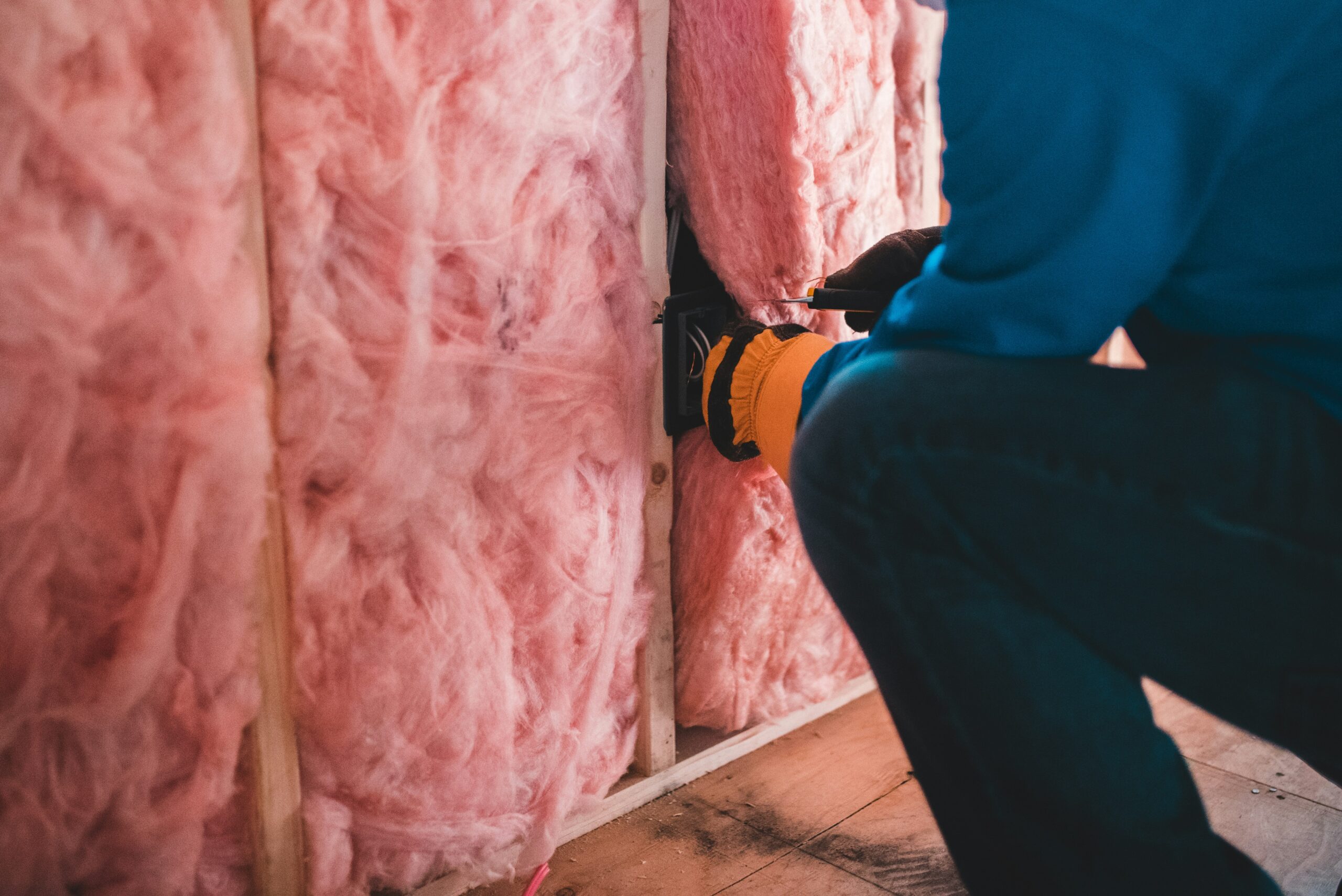Have you ever wondered whether having spray foam insulation in your home could affect your ability to secure a mortgage? As more homeowners become environmentally conscious and focus on energy efficiency, spray foam insulation has become a popular choice. But with this choice comes questions and concerns, particularly when it involves one of your most significant investments – your home. This article is here to help you navigate those concerns.
Understanding Spray Foam Insulation
Spray foam insulation is a type of insulation that is sprayed onto surfaces and can expand to fit the space it’s applied to. It’s often used in walls, roofs, and other areas that might be difficult to insulate with traditional materials.
Types of Spray Foam Insulation
There are two main types of spray foam insulation: open-cell and closed-cell. Each has its own applications, benefits, and considerations.
| Type | Description | Benefits | Considerations |
|---|---|---|---|
| Open-Cell | A lighter, less dense foam that is flexible and airy. | Good for soundproofing, relatively cheaper, expands significantly. | Lower R-value per inch, not water-resistant. |
| Closed-Cell | A denser and more rigid foam that forms a solid barrier. | Higher R-value per inch, strong insulating properties, water-resistant. | More expensive, may require professional installation. |
Benefits of Spray Foam Insulation
Spray foam insulation offers several benefits which make it an attractive option for homeowners:
- Energy Efficiency: Reduces heating and cooling costs by creating an effective barrier against air leaks.
- Comfort: Maintains a consistent indoor temperature, enhancing overall comfort.
- Soundproofing: Open-cell foam, in particular, offers great soundproofing properties.
- Moisture Barrier: Closed-cell foam acts as a moisture barrier, reducing the risk of mold and mildew.
Potential Drawbacks
While spray foam insulation has its advantages, there are also potential drawbacks:
- Cost: It can be more expensive than traditional insulation types.
- Installation: Improper installation can lead to issues such as off-gassing or an incomplete barrier.
- Reparability: Repairs can be challenging if the foam is damaged.
Spray Foam Insulation and Mortgages
Securing a mortgage involves scrutiny of various aspects of your property, including its insulation. Lenders want assurance that the house they’re providing a loan for is a sound investment.
How Spray Foam Insulation Impacts Mortgage Approval
Several factors can affect whether spray foam insulation could make a difference in your mortgage application:
- Structural Concerns: Some older properties weren’t initially designed to accommodate modern insulation standards. Spray foam can sometimes hide issues or make future repairs more difficult.
- Valuation and Resale Value: Properly installed spray foam insulation can add value to your home, while poor installation could potentially decrease it.
- Technical Approvals: Some lenders require technical assessments to ensure the spray foam insulation meets regulations and building codes.
Mortgage Lender Stipulations
Some lenders have specific requirements related to insulation. Here are some aspects you might encounter:
- Survey and Inspection: Lenders may request a detailed survey. Spray foam insulation can sometimes complicate inspections, especially if it conceals areas that need to be evaluated.
- Certifications: Lenders might require certification that the insulation was installed by a qualified professional and complies with local building codes.
- Insurance Considerations: Insurers’ policies can affect mortgage approvals. Some insurers might be wary if spray foam insulation could potentially conceal structural issues.

What You Need to Know Before Applying for a Mortgage
Understanding how your spray foam insulation might affect your mortgage application is crucial.
Getting a Property Surveyed
A survey might reveal whether the insulation is a potential issue. It’s essential to communicate openly with your mortgage advisor and surveyor about the presence of spray foam insulation.
Documentation and Certification
Having the correct documentation and certification for your spray foam can ease potential concerns. Make sure the insulation was installed by a certified professional and that you have proof that it meets local codes.
Working with Knowledgeable Professionals
Experienced professionals, from real estate agents to mortgage brokers, can guide you through the process. They can help anticipate any issues and advise on the best way to present your property.
Addressing Common Concerns with Spray Foam Insulation and Mortgages
When considering getting a mortgage, you might have some common concerns that need to be addressed.
Health and Safety
One common concern is the potential health risks associated with spray foam insulation. Proper installation and curing are critical to ensure that the foam does not off-gas harmful chemicals. Request documentation from installers to verify that health and safety standards were met.
Inspection and Valuation Issues
If a home’s insulation can’t be adequately assessed, inspectors might flag it for potential concealed damages. Hiring an experienced inspector who understands spray foam insulation can mitigate some of these concerns.
Long-term Durability
Some lenders might be skeptical about the long-term durability of spray foam insulation. Ensuring that the product used is high-quality and appropriately applied can alleviate these worries.

Case Studies
Real-world examples can provide some perspective on dealing with spray foam insulation and mortgages.
Successful Mortgage Approvals
A couple in New York renovated their 1960s-era home with closed-cell spray foam insulation to improve energy efficiency. When applying for a mortgage, their preemptive steps, such as acquiring all relevant certificates and discussing potential concerns with their lender upfront, resulted in a smooth approval process.
Challenges Faced
In another case, a family in Texas faced challenges with their mortgage application due to spray foam insulation concealing areas that needed inspection. It delayed the process but was resolved by hiring a specialized inspector who confirmed that the installation was up to code.
Lessons Learned
These examples highlight the importance of preparation. Having all necessary documentation and understanding the potential inspection hurdles can make a significant difference in your mortgage application’s success.
Tips for Homeowners with Spray Foam Insulation
If you already have or are considering spray foam insulation, here are some tips to ensure it doesn’t become a hurdle in your mortgage process.
Proper Installation
Ensure that installation is done by certified professionals. Improper installation is a common cause of concern for lenders.
Keep Documentation
Maintain all documentation related to the installation, including receipts, certificates, and any inspection reports.
Communicate with Your Lender
Being upfront with your lender about the insulation type and providing all necessary paperwork can prevent delays in your mortgage application process.
Regular Maintenance
Perform regular checks to ensure the insulation remains in good condition and doesn’t conceal any issues.
Hire Qualified Inspectors
When an inspection is part of the mortgage process, hiring an inspector knowledgeable about spray foam insulation can be beneficial.

Future Trends and Considerations
Looking forward, the use of spray foam insulation and its impact on mortgages may evolve with increasing acceptance and regulation.
Innovations in Spray Foam Insulation
New developments are constantly happening in the materials and methods used for spray foam insulation. Innovations that increase safety, efficiency, and environmental friendliness are likely to make spray foam a more accepted choice in the lending world.
Changing Lender Policies
As spray foam becomes more common, lender policies may adapt to address associated concerns more effectively. Keeping abreast of these changes will be beneficial for prospective homeowners.
Sustainability and Mortgage Rates
With the global push towards sustainability, homes with energy-efficient features like spray foam insulation might qualify for green mortgages or better rates. Discuss potential benefits with your lender.
Conclusion
So, can you get a mortgage with spray foam insulation? The answer is yes, but with some considerations. Ensuring the insulation is properly installed, maintaining thorough documentation, and communicating openly with your lender are key to navigating the process smoothly. By understanding the potential hurdles and preparing accordingly, you can confidently go through your mortgage application process and enjoy the numerous benefits that spray foam insulation brings to your home.

